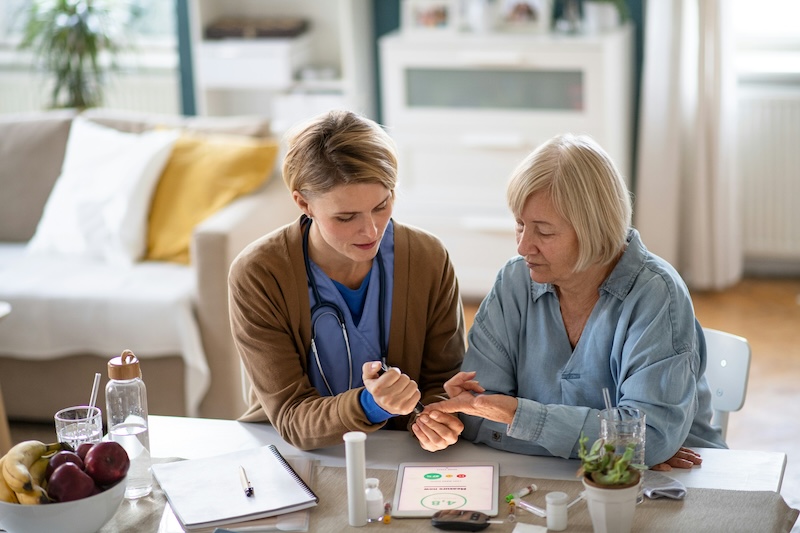By Sherrie L. Hoover, AGACNP-BC
At Restore First Health, our advanced wound care program treats chronic wounds that are often compromised or stalled because of a patient’s diagnosis of diabetes. Chronic wounds can have delayed healing caused by diabetes. Diabetes is important to monitor because it can slow wound healing if not properly managed and treated.
What is diabetes?
Diabetes is when your blood glucose level is too high. When someone has diabetes, their body does not produce insulin, or the body cannot use the insulin properly. Glucose monitoring is needed to ensure strict management of diabetes. This will help the wound heal faster. Restore First Health will collaborate with patient care teams to ensure diabetic patients are well managed.
How is glucose monitored?
Individuals with diabetes can check their blood glucose daily by:
- Using a continuous glucose monitor.
- Using a blood glucose meter.
To see the overall blood glucose control over a three-month period, a lab can be drawn. This is known as an A1c. Restore First Health can work with your primary care physician or local mobile lab to check your A1c in the comfort of your home by completing a fingerstick.
How does diabetes affect wounds?
Diabetes causes impaired circulation. When glucose is high the blood vessels constrict which reduces blood flow to the wound. Blood needs to flow to the wound which brings vital nutrients for healing. People who have diabetes can also have a decreased immune ability. High glucose levels impact the immune system and diabetics are more likely to get infections. Diabetes can make it difficult for the body to fight infections.
How is diabetes managed?
Diabetes can be managed by proper diet, medications and insulin. The treatment for diabetes is to control blood sugar. Managing diabetes includes:
- Take prescribed medications
- Eating healthy food and reducing starchy and fatty foods
- Exercise
Our care team will evaluate your blood work or perform an A1c to get a snapshot of your blood glucose control. We provide extensive patient education and recommendations for optimal glucose control.
Supporting Resources:
- Burgess JL, Wyant WA, Abdo Abujamra B, Kirsner RS, Jozic I. Diabetic Wound-Healing Science. Medicina. 2021; 57(10):1072. https://doi.org/10.3390/medicina57101072
